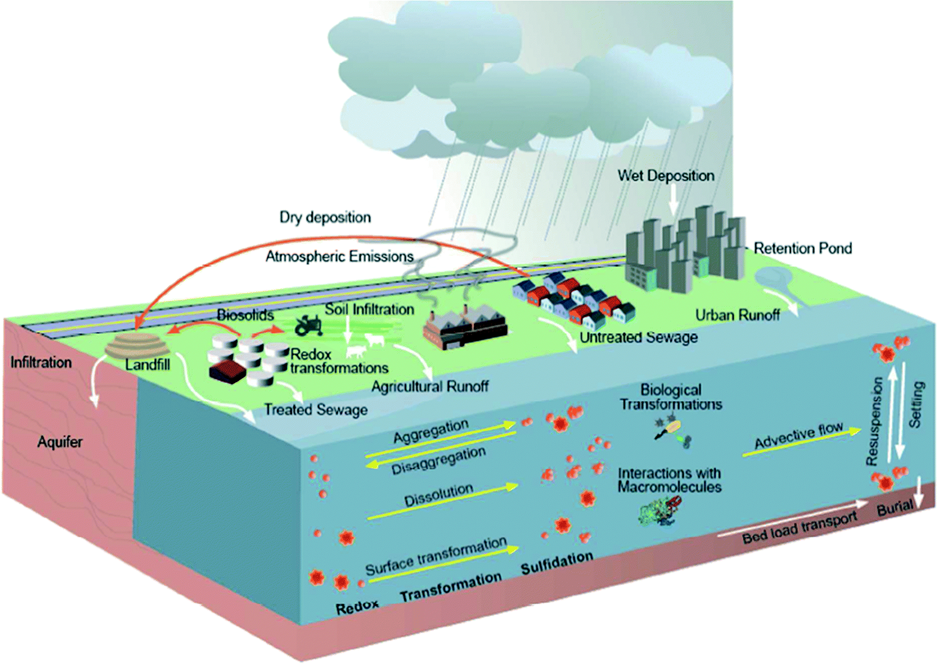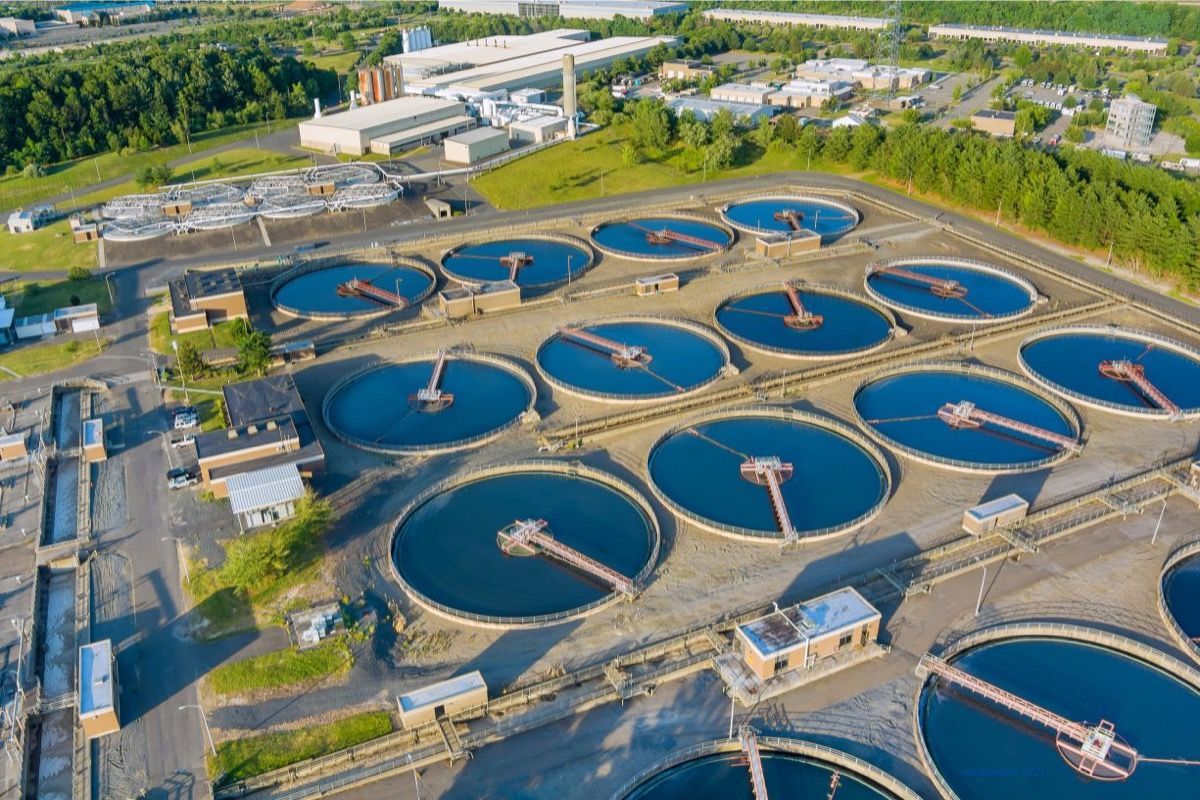Checking Out Water Technology Startups: Just How They Transform Sustainable Solutions
Water Technology start-ups are emerging as vital players in the quest for lasting solutions to international water problems. These business utilize innovative technologies to boost water effectiveness and monitoring. Their contributions deal with pushing challenges such as deficiency and contamination. Despite their possibility, they face numerous challenges that might affect their success. Comprehending these characteristics clarifies the future of water sustainability and the function these start-ups may play in forming it.
The Value of Water Technology in Today's World
As international water scarcity intensifies, the importance of water Technology becomes progressively apparent. Water Technology plays an important function in dealing with the obstacles posed by decreasing fresh water sources and boosting demand. It includes a wide series of developments, including sophisticated filtration systems, wastewater therapy modern technologies, and smart watering options. These advancements not just boost the performance of water use but also promote sustainable methods across various fields, including farming, industry, and city advancement.
Moreover, the value of water Technology extends past source monitoring. It promotes resilience versus environment modification effects, such as floods and droughts, by offering adaptive solutions for water preservation and administration. In addition, it sustains public health by ensuring access to clean and safe alcohol consumption water. As the globe encounters growing water-related difficulties, the integration of innovative water technologies is essential for cultivating lasting development and safeguarding water schedule for future generations.
Cutting-edge Solutions From Water Technology Startups
While typical approaches to water monitoring have offered their purpose, a brand-new wave of water tech start-ups is revolutionizing the market with cutting-edge remedies (Water Technology Startups). These business utilize cutting-edge innovations to deal with pushing water issues, such as shortage, contamination, and inefficient circulation. Lots of start-ups make use of expert system and maker understanding to maximize water usage and predict demand, resulting in more lasting methods
Additionally, several firms concentrate on establishing advanced filtering systems that get rid of contaminants and make water risk-free for intake. Others discover decentralized water treatment technologies, permitting areas to manage their water resources much more effectively. Some startups are introducing clever watering remedies that decrease water waste in farming, advertising environmental preservation.
Instance Studies: Effective Water Technology Startups
Many water Technology startups have actually become leaders in resolving international water obstacles through innovative strategies. One significant instance is Xylem, which concentrates on water analytics and clever facilities to optimize water use and lower waste. Their options have been applied in various towns, showing substantial improvements in water management efficiency.
An additional successful startup, Absolutely no Mass Water, has actually developed solar-powered hydropanels that remove water vapor from the air, giving sustainable alcohol consumption water in arid regions. Water Technology Startups. This Technology has actually been deployed in several nations, making certain communities have accessibility to tidy water
AquaVenture Holdings operates a varied profile of water-as-a-service remedies, attending to water shortage with desalination and wastewater therapy. Their jobs have actually verified important in areas encountering serious water lacks, showcasing the potential of ingenious water modern technologies to create lasting, positive impacts. These study highlight the transformative potential of start-ups in the water Technology field.
The Function of Smart Technology in Water Monitoring
Smart Technology plays a vital function in modern water monitoring by leveraging IoT applications to maximize source usage. Data analytics enhances effectiveness by offering workable insights, while remote tracking options make it possible for real-time oversight of water systems. With each other, these developments change exactly how water is taken care of, advertising sustainability and functional efficiency.
IoT Applications in Water
As water deficiency and administration obstacles escalate internationally, the integration of Net of Things (IoT) applications has become a pivotal option in optimizing water resources. IoT Technology helps with real-time surveillance and analysis of water supply, making it possible for more reliable use and administration. Sensing units deployed in various water frameworks can track top quality, flow rates, and leak, providing beneficial data to stakeholders. This information empowers customers and energies to make informed choices, reducing waste and improving preservation efforts. In addition, clever irrigation systems use IoT to optimize water distribution for farming, making sure that crops receive the correct amount of water at the ideal time. Overall, IoT applications are changing traditional water administration practices, promoting sustainability and durability in water resource systems.
Data Analytics for Effectiveness
Utilizing information analytics is important for enhancing efficiency in water management. Water Technology start-ups are increasingly utilizing advanced analytics to optimize source allowance and minimize waste. By analyzing data from various sources, these start-ups can recognize patterns and patterns that notify far better decision-making. Anticipating analytics can anticipate water demand, allowing utilities to change supply as necessary, thereby lessening surpluses and shortages. Furthermore, real-time information handling makes it possible for the immediate discovery of leakages and inefficiencies within distribution systems, greatly reducing functional costs. Moreover, data-driven understandings encourage stakeholders to apply targeted preservation techniques, cultivating lasting techniques. Basically, incorporating data analytics into water administration not only improves operations however also advertises lasting sustainability in water resource usage.
Remote Monitoring Solutions
While typical water management systems often battle with inefficiencies, remote tracking solutions are changing just how water sources are handled. These cutting-edge innovations make it possible for real-time information collection and analysis, permitting stakeholders to keep an eye on water top quality, circulation prices, and usage patterns from afar. Using sensors and IoT devices, remote surveillance gives prompt insights that facilitate aggressive decision-making. This shift not just improves operational efficiency but also promotes sustainability by reducing water waste and enhancing source allocation. Additionally, remote tracking systems can recognize possible problems before they rise, thereby decreasing the risk of contamination or facilities failure. As water Technology start-ups proceed to develop these remedies, the industry is poised for considerable developments in lasting water management practices.
Challenges Facing Water Technology Startups
Water Technology startups run into substantial challenges that can prevent their development and success. Key problems consist of securing ample financing, navigating via complicated governing atmospheres, and completing in a congested market. These obstacles need strategic preparation and development to get rid of.
Funding and Financial Investment Challenges
Advancement in water Technology holds enormous capacity for attending to global obstacles, startups in this market often face considerable financing and financial investment obstacles. Many financiers stay careful, regarding the water market as risky as a result of its complicated regulatory landscape and long development timelines. Additionally, start-ups usually battle to show instant profitability, which can hinder prospective backers. Typical endeavor resources may forget water innovation, preferring industries with quicker returns, such as technology or durable goods. Moreover, safeguarding gives and government financing can be time-consuming and affordable, additional making complex monetary stability. Water Technology Startups. Therefore, numerous ingenious water Technology startups locate themselves in a precarious placement, requiring innovative financing approaches to navigate these monetary barriers and attain their goals
Governing Conformity Issues
Guiding regulatory conformity is a significant challenge for startups in the click here water Technology market, as they must grapple with a myriad of regional, nationwide, and international policies. These policies frequently incorporate water top quality standards, environmental management laws, and safety protocols, which can vary commonly across territories. Start-ups may locate it hard to navigate this complicated landscape, especially when scaling operations or entering new markets. The expenses connected with conformity can be significant, drawing away resources away from advancement and item growth. In addition, hold-ups in getting essential authorizations or certifications can hinder development and market entrance. As a result, a durable understanding of regulatory frameworks is important for these start-ups to ensure sustainable operations and prevent potential legal consequences.
Market Competition Dynamics
As water Technology start-ups arise in a competitive landscape, they face countless challenges that can restrain their growth and development. Developed business frequently dominate the market, leveraging sources and experience to preserve their settings. Startups fight with minimal financing, which limits research and development abilities, making it difficult to contend on Technology and rates. In addition, the rapidly advancing nature of water technologies demands consistent adaptation, additional straining startup sources. Governing hurdles can make complex market entrance, as conformity with ecological standards is critical yet expensive. Ultimately, bring in competent ability in a particular niche area offers one more challenge, as larger companies might provide more appealing work packages. As a result, these elements develop an intricate atmosphere for water Technology startups intending to prosper.

The Future of Water Technology and Sustainability

The future of water Technology will likely concentrate on incorporating expert system and data analytics to optimize water circulation and use patterns. By utilizing real-time information, business can forecast lacks and take care of resources better. Moreover, lasting techniques will become a cornerstone of the sector, encouraging round economies where water is recycled and dealt with. Eventually, the ongoing advancement of water Technology will certainly be essential in producing durable frameworks qualified of meeting the difficulties positioned by climate modification and population development while advertising environmental stewardship.
Regularly Asked Questions
What Are the Trick Metrics for Assessing Water Technology Startups?
Key metrics for evaluating water Technology startups include market capacity, scalability, customer acquisition expenses, income development, modern technology development, regulative compliance, ecological impact, competitive benefit, and group proficiency, all important for figuring out long-term viability and success.
Just How Can People Support Water Technology Innovations?
Individuals can support water Technology innovations by purchasing startups, promoting for policy changes, taking part in area campaigns, sharing knowledge concerning lasting techniques, and advertising recognition of water issues with regional events and social media.
What Are Common Financing Resources for Water Technology Startups?
Typical financing resources for water tech startups consist of equity capital, federal government gives, crowdfunding platforms, angel financiers, and business partnerships. These economic opportunities help promote advancement and advancement in lasting water management modern technologies.

Which Industries Benefit Most From Water Technology Advancements?
Industries such as farming, power, manufacturing, and municipal solutions profit substantially from water Technology improvements. These advancements improve water effectiveness, reduce expenses, and promote lasting techniques, ultimately contributing to ecological conservation and source administration.
Are There Any Governing Difficulties Certain to Water Innovation?
Yes, water Technology faces governing challenges, consisting of compliance with ecological requirements, allowing processes, and differing regional laws. These intricacies can hinder innovation and reduce the implementation of brand-new technologies in the water monitoring industry.
Water Technology start-ups are emerging as critical players in the pursuit for sustainable options to international water issues. As global water scarcity heightens, the relevance of water Technology ends up being increasingly evident. Others discover decentralized water therapy innovations, allowing areas to manage their water resources a lot more efficiently. One more successful startup, Absolutely no Mass Water, has established solar-powered hydropanels that extract water vapor from the air, giving sustainable drinking water in arid areas. Their projects have verified essential in regions facing serious water lacks, showcasing the possibility of cutting-edge water modern technologies to produce long-term, favorable effects.